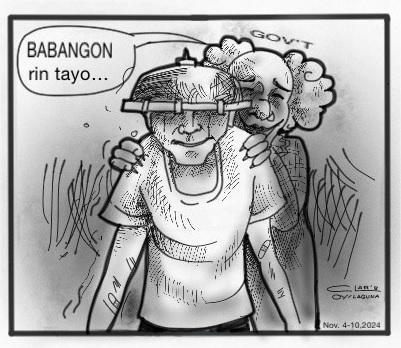In the aftermath of severe tropical storm “Kristine,” concerned experts and netizens agree on one thing: if there’s one thing that prevents us from moving forward from the threat of disasters, it’s this thing called “resilience.”
The dictionary meaning of "resilience" (according to the Merriam-Webster Dictionary) is "the ability to recover from or adjust easily to misfortune or change."
Filipinos have been praised for their “resilience,” the innate desire to rebuild their homes and their lives from the countless storms that have befallen our country for decades.
Yet it’s also clear that we, as a nation, seem to never learn the lessons that past storms have hammered over us.
“Resilience” should have enabled us to build better, to ensure that the infrastructure we have built will withstand the threat of natural calamities even stronger than the ones that were destroyed.
“Resilience” should have taught us that Nature does not play games, and should’ve convinced local officials to strictly implement laws on urban planning, waste disposal, environmental protection, blah, blah, blah…
Instead, “resilience” has been used as a prop, an excuse, to avoid accountability not just among our public officials but even among ourselves as a nation. “Resilience” is now used to justify gross inaction, massive corruption and negligence.
In truth, the phrase “babangon rin tayo” is now almost meaningless. Climate change, the clearest sign that Nature is fed up with humanity’s impunity and indifference, poses a real danger to all of us.
For us to truly epitomize “babangon rin tayo,” let’s start by being better stewards of the environment and to build sturdy structures to protect us against natural calamities.
If we continue to use “resilience” to justify inaction in the face of increasingly intense weather disturbances, there will come a time when “babangon rin tayo” will no longer hold true.
#WeTakeAStand #OpinYon #OpinYonNews #Editorial
